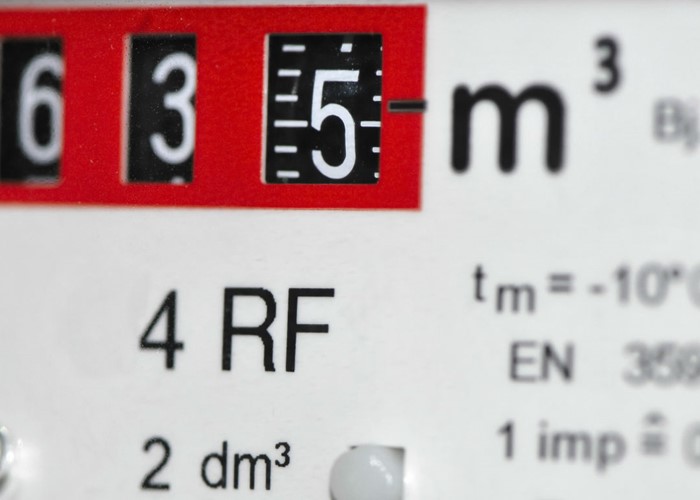5 gas and electricity rip-offs

Neil Faulkner looks at five ways that energy companies pick your pockets, sometimes with a little help from their friends in the media.
It's not just pricing power that energy companies have over us, it's also the power to mislead and bamboozle. There are hidden costs that fool not just innocent customers, but so-called experts as well. Here are just five tricks our suppliers get up to:
Unclear exit charges
Let's say you switch supplier and then your new one puts up prices. You might want to switch quickly again, but you may find that the cost of switching is prohibitive thanks to exit fees. Your contract will say how long you have to pay exit fees for, which is typically either for about a year, or till the middle of winter, or till a special deal runs out.
But that's not the unclear bit. It gets worse. All energy price-comparison sites estimate your bill on the basis that you'll stay with the supplier for at least one year (because most customers do), and assume you'll get the full cashback and commission that a tariff might be offering for those 12 months.
The problem is, some suppliers will not pay you your cashback or even a part of it if you leave inside the first year. Hence, your quote for, e.g. £600 per annum will not just take an extra hit because of the, say, £50 exit fee, but your cashback of sometimes more than £100 disappears too. This is a huge disincentive to switching frequently.
When you compare energy prices through us, you can easily see the exit fees and cashback too.
Rolling price changes
This is a neat trick, with the suppliers using energy commentators' advice against the public. We're told by most commentators to wait when a major supplier changes prices, because a change from one of the big six inevitably leads to changes from all the others over the following two to three months. The idea is you compare and switch when all the prices have been adjusted.
However, by waiting at the start of winter for all price rises to be announced it means for many that will stay on a more expensive tariff for longer at a time when you're using more energy.
Suppliers have also in recent years announced lower prices as winter turns to spring, causing people to wait for all suppliers to catch up before comparing and switching. In my tests over the past two years, this again will have been more expensive for you, because the suppliers have decreased the cost of their more expensive tariffs only, whilst leaving their cheapest online tariffs the same. Remaining on your more expensive tariffs for longer was, therefore, a mistake.
You can read more in You're making the same mistake again.
Regular switching is discouraged
Suppliers release more tariffs in winter with high unit charges and more in summer with high standing charges.
A high unit charge in the cold months is undesirable, as you're paying more for each unit of energy at a time when you're using more energy. Meanwhile, in summer, it's not so bad paying a high charge for each unit, as you don't use much. However, a high standing charge is going to penalise you for energy you're not using.
The nub is that this trick reduces or often even eliminates the benefit of switching every six months, with around 12 months being typically a more rewarding frequency.
So much for loyalty
Since we're living in strange times, some banks are beginning to reward rather than punish loyalty, as Rachel wrote in The best deals for loyal customers. Energy suppliers are carrying on with business as usual though, which means punish loyalty.
Once we've switched to another tariff, a supplier will rarely reduce the price of it even when the prices of newer tariffs are falling. On the flipside, our prices are increased as fast as any other at every opportunity. Eventually, by sticking with the same tariff too long you'll end up paying the same or worse than the supplier's standard (aka rip-off) tariff, which is typically a few hundred pounds more expensive than the cheapest.
Propaganda with help from the media
Energy suppliers are unwittingly helped again by their colleagues in the media. In spring this year, the media passed on the message from the suppliers that wholesale energy prices – the price that suppliers pay for the energy they sell on to us – were rising fast. The papers were full of reports that we must therefore expect huge increases to our energy bills, setting an easy ride for suppliers to start increasing prices for the winter treasure haul.
However, as I wrote in Big energy price hikes to come, wholesale prices were then still, even after the big recent rises, around 50% below their peak, having fallen off a cliff in 2009. The energy companies didn't bother sharing that with us, which is why the price we paid for energy barely shifted downwards. So the suppliers are quiet and unhelpful when wholesale prices fall, but insist on price increases when they rise again.
Let's not tar them all with the same brush
The big six suppliers use most of these tricks, but smaller suppliers are different. Ovo, for example, is building up a good reputation for fair prices and terms and conditions. It doesn't play games like many other suppliers do. So, when switching, consider not just the price, but exit fees and who you're buying from.
Comments
Be the first to comment
Do you want to comment on this article? You need to be signed in for this feature